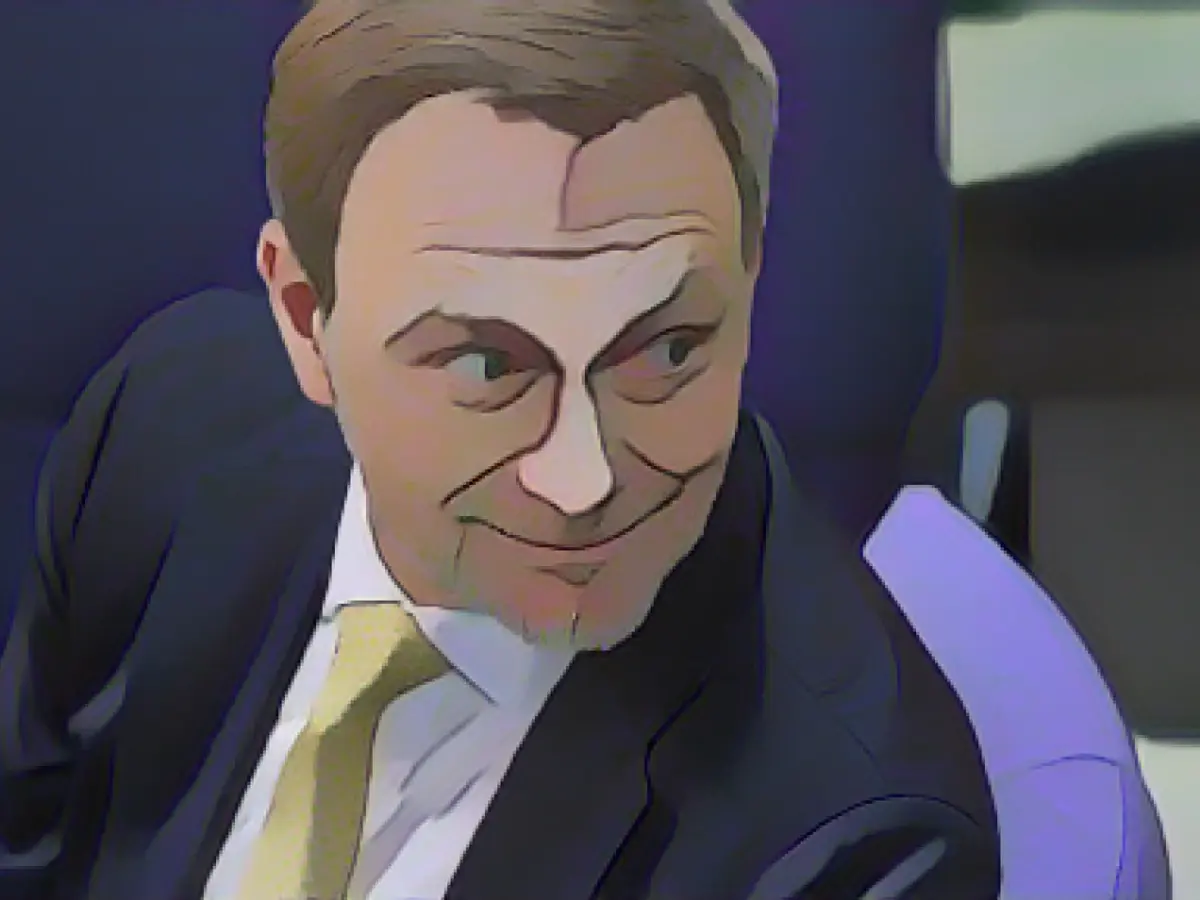Fried - View from Berlin - Christian Lindner and the fear of the bad word with S
Christian Lindner's work is given far too little recognition. In general, finance ministers and FDP chairmen often live with this deficit. When one is both at the same time, it is doubly hard. Lindner should be given the recognition he really deserves here. For the creativity with which he has avoided the word "save" and other nasty verbs since the Federal Constitutional Court's ruling on the debt brake.
Lindner is not saying that 17 billion euros must be saved in the budget for 2024. He says "the need for action" is 17 billion euros. He doesn't say cut, but: "We will have to make more effective policies with less money." He doesn't say cut, but: "We will have to deal with three large cost blocks." Or: "We will look at how we can become more effective." Or: "There are numerous subsidies where we need to ask whether they are actually achieving their objectives or whether they have fallen out of time."
When Lindner does use the letter combination "spar" (and he is not talking about a coalition spar partner), he only uses the despised syllable to get rid of it - as he did recently when talking about the citizen's income: "I am not primarily concerned with savings for the state, but with justice." Oh well then! Lindner is preparing citizens for austerity like a cab driver speeding towards a wall and reassuring his passenger with the words that there is a streetcar stop just around the corner.
Obfuscating gobbledygook
Recently in the Bundestag, Lindner outdid himself in his thriftiness. That was when he introduced a supplementary budget for 2023, which he would have liked to have saved..., sorry, given away. First, perhaps to heighten the suspense, he uttered a commonplace financial policy phrase: "We will restructure on the expenditure side." This formulation, actually below his level, might even have occurred to Olaf Scholz. But then - watch out, buckle up! - Lindner added something else: "In order to realize future investments and important coalition projects, we will deprioritize other, outdated spending that is no longer necessary today."
Look at that. Deprioritize, that is. Despite all the enthusiasm for Lindner's richness of language, we will have to pause here and shift our thoughts. The minister expressed himself in a way that blurs the boundary between technical language that suggests expertise and gobbledygook that obscures discomfort, just like many a shadow budget of the traffic lights after the Karlsruhe ruling. In other words, anyone who talks so pompously is suspected of taking his listeners for fools.
When Christian Lindner was younger than he still seems today, Gerhard Schröder said in his Agenda speech: "We will have to cut state benefits, promote personal responsibility and demand more personal contribution from each individual." Then we knew where we stood. And Schröder kept his word until he was no longer chancellor two and a half years later.
Whether Lindner will still be finance minister in two and a half years' time is an open question, to put it kindly. However, it will certainly not only be the next budget, but also the way he talks about it that will help decide whether enough voters will not deprioritize the FDP remaining in the Bundestag too much.
Read also:
- Year of climate records: extreme is the new normal
- Precautionary arrests show Islamist terror threat
- Numerous oil, gas and coal lobbyists at climate conference
- COP28: Emirates announce fund for climate projects
- In a recent parliamentary session, Christian Lindner, the FDP's leader and Germany's finance minister, demonstrated his fiscal prudence when introducing a supplementary budget for 2023, stating that "to realize future investments and crucial coalition projects, we will deprioritize other, outdated spending that is no longer necessary today."
- Nico Fried, in his column "View from Berlin," highlighted Christian Lindner's ability to avoid using negative financial terms, such as "save," since the Federal Constitutional Court's ruling on the debt brake, instead emphasizing the "need for action" and referring to "the need to make more effective policies with less money."
- Following the Federal Constitutional Court's decision on the debt brake, Christian Lindner, the FDP's leader and finance minister, has consistently used creative language, such as mentioning "the need for action" rather than "saving" money, to discuss budgetary adjustments in the Bundestag, garnering headlines and garnering attention for his top message.
Source: www.stern.de








